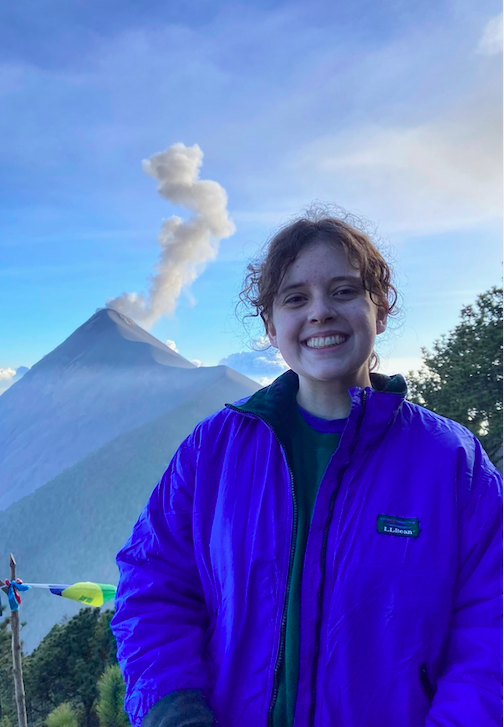Research Symposium
22nd annual Undergraduate Research Symposium
Chanti Max Poster Session 4: 12:30-1:15/Poster #45

BIO
I am a first-year environmental science student from South Florida. Exposed to conservation efforts at a young age, I have always been interested in sustainability and the environment. Therefore, coming to FSU, I knew I wanted to work with researchers working in conservation and have also gotten involved with Sustainable Campus. In the future, I hope to use my research experience and combine my interests in Indigenous studies and science to further environmental justice globally.
Estimation of Behavioral States in Migratory Post-Breeding Male Green Sea Turtles (Chelonia mydas) in Fernando de Noronha, Brazil
Authors: Chanti Max, Joshua CullenStudent Major: Environmental Science
Mentor: Joshua Cullen
Mentor's Department: Department of Earth, Ocean and Atmospheric Sciences Mentor's College: College of Arts and Sciences Co-Presenters:
Abstract
The study of animal movement through tagging (i.e., telemetry) studies have been increasingly used to understand an organism’s location and behavior. Although sea turtles have been extensively studied using satellite and acoustic telemetry methods, these studies have focused on juveniles and post-nesting adult females. To increase our understanding of movement patterns for both sexes across various life stages, data is needed on the movement patterns of adult male sea turtles. This study seeks to address this gap in spatial ecology by determining the behavioral states of adult male green turtles (Chelonia mydas). In 2021, eight post-breeding adult male green sea turtles were fitted with satellite transmitters in Fernando de Noronha off the coast of Brazil. To account for the location error, a continuous-time state-space model (SSM) was used. Continuous behavioral states were then estimated using this SSM which considers persistence in direction and velocity. One end of the continuum represents slow (ARS) behavior and the other fast transiting movements. We hypothesize there will be a clear distinction between behavioral states, where ARS behavior is exhibited near the shallow breeding site and foraging grounds, and fast transiting behavior during the migratory period over deep water. When data was regularized, we found a distinct change in behavior of the six turtles that migrated towards Brazil’s coast. Identifying these behavioral states and movement patterns of adult male green sea turtles can help inform conservation efforts and increase our understanding of spatial ecology.
Keywords: Turtle, conservation, marine, behavior, ocean

